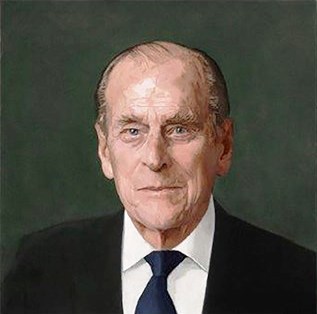Prince Philip; A Long Life Well Lived
Dear Reader,
Prince Philip, the Duke of Edinburgh, had been around for all my near 77 years, and from the time I was a child, I can remember the cobwebs that he disturbed in the establishment in the 1950s. He was frequently on the heels of the heads of industry and innovation, exhorting them to improve their game.It was not surprising, therefore, to find out that Prince Philip was an active patron of numerous business organisations concerned with engineering, architecture, the Design Council, chemistry and aeronautics. He chaired a committee for the Queen’s Award to Industry, and he was an engaging fundraiser. The Royal Academy of Engineering was founded in June 1976 as the Fellowship of Engineering with considerable support from Prince Philip, a commitment that was dear to his heart to the end of his days. Engineers speak highly of him and have been astonished by his knowledge, an attribute that was not publicly known.
The most public involvement of his was the flagship Duke of Edinburgh Award Scheme, which was one of The Duke’s most remarkable achievements, since 1956. It succeeded in equipping and empowering young people from all communities to build the skills, confidence, and resilience they required to make the most out of life.
In 1957 on BBC television, he presented a series of short films explaining 18 months of geophysical exploration. The programme showed how scientists from all over the world took part in an attempt to answer fundamental questions about the world we live in. The Duke also presented a BBC programme about the environment.
He was a visionary, using commonsense as his basis for a practical life. He was always interested in environmental issues and he was ahead of the game when he became a principal founder of The World Wide Fund for Nature, an international non-governmental organisation, in 1961. He was its very active president for 20 years. He also took on the running of the royal estates at Windsor, Balmoral and Sandringham and moved them on to organic principles.
In other charitable activity, he provided unwavering support for the British Heart Foundation and Muscular Dystrophy UK as patron of both for more than 50 years. He had a long record of supporting charities in the UK and around the world, both behind the scenes and publicly, with his patronage of around 800 organisations, including Charities Aid Foundation.
He was also a sportsman and was a capable player in both polo and cricket, and involved in equestrian matters in general, as well as being a capable painter.
His example was taken up by both Prince Charles and Princess Anne, the Duke's eldest children. Both hugely committed to worthwhile charitable causes, including Prince Charles's own Prince's Trust, as well as being straight-talking, like their father. I have to say that his publicised attitude rubbed off onto me at a time when, as a youngster, I was looking for a role model.
One time heir to the Greek throne, and having European royal blood from both parents, Prince Philip came to Britain as a refugee early in his life and eventually attended the Royal Naval college. He saw much active service in the War in the Navy but was also a capable pilot.
He married the then Princess Elizabeth in 1947, and at the time the Queen acceded to the throne in 1952 he was in command of his own Naval ship. He was destined for high rank, but he stood down to support the Queen and commit himself to activities in civilian life. He no longer had to earn his living but with all the time in the world at his disposal, he put himself to good use, using the well-honed creative skills that he had to use from a boy when he had virtually no close family at hand apart from Lord Louis Mountbatten as his mentor.
Perhaps looked upon by some in modern times as a dinosaur, he was actually a 'character' and a gifted man who spoke sense and had good humour, though sometimes innocently misplaced. First and foremost he was a considerable support to his wife, the Queen, his distant cousin, and set a remarkable example to follow for his children and many others, as well as providing opportunities to young people from all backgrounds.
Ego-less (even bashful), private and frequently cantankerous (towards those he considered to be fools at least) but also energetic and inspiring, the near-100-year-old left a 'no fuss' request for his funeral. The UK will greatly miss him and probably should remember his substantial contribution to positive thinking, the welfare of the UK and the Commonwealth - and the environment movement.
Thank you for reading this.
Read Facts about the Duke of Edinburgh

Comments
Post a Comment